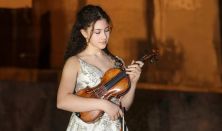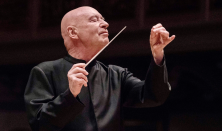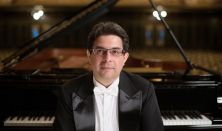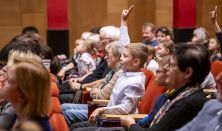Program
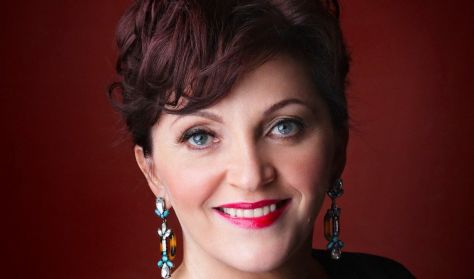
LOVE TILL THE END - Wagner / Strauss / Prokofjev / Saint-Saëns - Eszter Sümegi, Róbert Farkas L/1
Each of the pieces in our concert program is about love. Wagner's work is a wedding gift for his young wife; the story of Romeo and Juliet, which inspired numerous musical works, is a tragedy that ends in the death of a couple; Richard Strauss's wonderful song cycle is a farewell to a life well lived in a happy marriage.
Nincs aktuális előadás
Ön egy múltbeli eseményre keresett rá. Kérjük, válogasson aktuális kínálatunkból a Jegy.hu keresőjében!
Last event date: Thursday, September 21 2023 7:00PM
PROGRAM
R. Strauss: Four Last Songs
Prokofjev: Romeo and Juliet – Suite No. 1 and 2.
Saint-Saëns: Samson et Dalila – Bacchanale
FEATURING
CONDUCTOR
Each of the pieces in our concert program is about love. Wagner's work is a wedding gift for his young wife; the story of Romeo and Juliet, which inspired numerous musical works, is a tragedy that ends in the death of a couple; Richard Strauss's wonderful song cycle is a farewell to a life well lived in a happy marriage.
Róbert Farkas studied choral conducting and conducting at the Franz Liszt Academy of Music, and completed his studies in Berlin. He has been the chief conductor of our orchestra since 2021.
Our offer
Perényi Miklós, Takács-Nagy Gábor
Mirian Khukhunaishvili, Mariam Abouzahra
BARTÓK FUNDAMENTUM - Christoph Eschenbach MŰSOR Bartók: I. hegedűrapszódia, BB 94b Bartók: II. zongoraverseny, BB 101 Bartók: Concerto zenekarra, BB 123 KÖZREMŰKÖDIK Kelemen Gáspár - hegedű Tzimon Barto - zongora VEZÉNYEL Christoph Eschenbach
Suggestions
Beethoven: Missa Solemnis
Mediterrán ünnep Farkas Gábor, Farkas Róbert
A TAVASZ / 11:30 Székely Edit
Warning! The basket time limit is about to expire!
item(s) in basket
total:
Time limit has expired. Please, put item(s) in to basket again.


